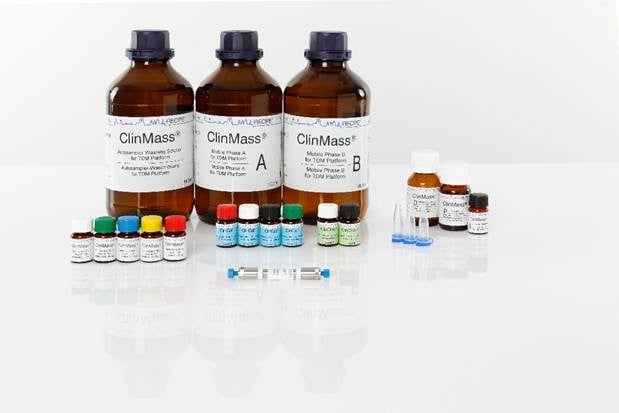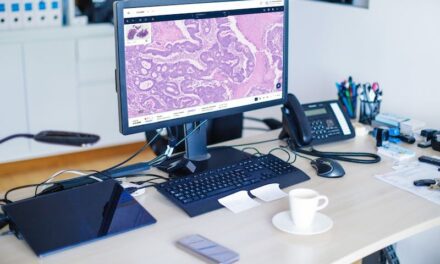Summary:
Bruker Corporation announced a majority investment in RECIPE Chemicals + Instruments to strengthen its clinical mass spectrometry capabilities, including novel high-throughput, chromatography-free diagnostic assays.
Three Takeaways:
- Bruker’s investment boosts its offerings in therapeutic drug monitoring (TDM) and clinical assays through RECIPE’s ClinMASS and new ClinDART platforms.
- The new EVOQ DART-TQ⁺ system allows high-throughput, solvent-saving, chromatography-free testing with high sensitivity and cost efficiency.
- The collaboration aims to accelerate clinical lab workflows and set new standards for small molecule diagnostics and drug screening.
Bruker Corporation announced a majority investment in RECIPE Chemicals + Instruments GmbH, based in Munich, Germany. RECIPE is a leading European provider of vendor-agnostic therapeutic drug monitoring (TDM) and other clinical in vitro diagnostic kits for LC-MS/MS, HPLC, and ICP-MS assays.
Investment Enhances Bruker’s Capabilities
The majority investment and strategic collaboration immediately enhances Bruker’s capabilities in small molecule clinical diagnostic assays with RECIPE’s ClinMASS kits for Bruker’s EVOQ liquid chromatography triple-quadrupole mass spectrometers, as well as for LC-TQ-MS systems by other vendors. In addition, the companies are preparing the introduction of high-throughput, chromatography-free RECIPE ClinDART kits running on flexible EVOQ DART-TQ⁺ systems that can easily switch between established LC-TQ-MS methods, and the novel high-throughput ClinDART workflows.
“We are excited to welcome RECIPE to the Bruker family. This majority investment aligns with our strategic vision for LC-TQ-MS assays, enhanced with novel chrom-free assays based on our proprietary DART technology to lead in clinical research and regulated TDM markets,” says Jeffrey Zonderman, senior vice president of Bruker Applied Mass Spectrometry. “The RECIPE ClinMASS and novel ClinDART assays, combined with LC or chrom-free EVOQ DART-TQ⁺ methods, are expected to offer unparalleled flexibility, throughput and cost-effectiveness.”
High Throughput in Chrome-Free Mode
In chrom-free mode, the EVOQ DART-TQ⁺ offers higher throughput for multiplex assays without chromatography, while maintaining outstanding sensitivity and quantitation with triple-quad MS selectivity and multiple-reaction monitoring (MRM) capabilities. The ClinDART platform also improves sustainability with a 95% reduction in solvent use, lower cost, and increased laboratory productivity. ClinDART is complementary to RECIPE’s ClinMASS LC-TQ assay portfolio and is expected to set new standards for high-throughput therapeutic drug monitoring (TDM), drugs of abuse screening, and other applications.
“Bruker’s majority investment in RECIPE and our planned joint introduction of high-throughput ClinDART assays represents a significant advancement in clinical mass spectrometry,” says Gernot Wolfram, MD, managing director at RECIPE. “Our unique collaboration on chrom-free, triple-quad TDM assays will allow RECIPE to provide clinical laboratories with a powerful new tool that complements our well-regarded ClinMASS workflows on the EVOQ DART-TQ⁺. The additional high-throughput ClinDART methods reduce operating costs, and accelerate time-to-market for newly developed clinical diagnostics and multiplexed drugs of abuse screening assays.”
Financial details of the transaction were not disclosed. RECIPE has over 60 employees and continues to operate under the leadership of Wolfram. With more than 40 years of experience, RECIPE is a highly respected, profitable company with 2024 revenues of more than $ 15 million, according to the company.
“With the increasing importance of triple-quadrupole-based small molecule clinical diagnostics, our strategic collaboration with RECIPE is a pivotal step to democratize fast, efficient and sensitive assays for TDM, drugs of abuse screening and other clinical assays on a high-throughput, chrom-free TQ-MS platform,” says Juergen Srega, Bruker CALID group president.
Featured Image: RECIPE kits for clinical laboratories. Image: Bruker





